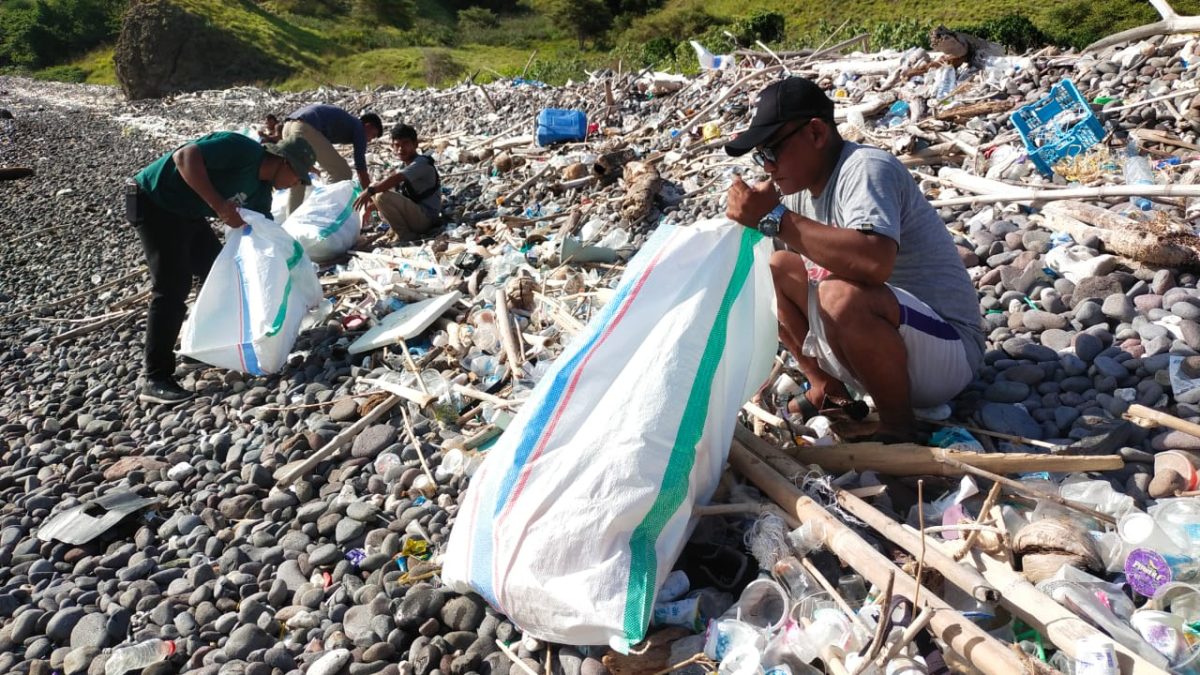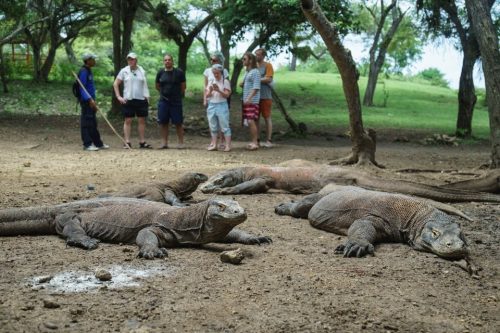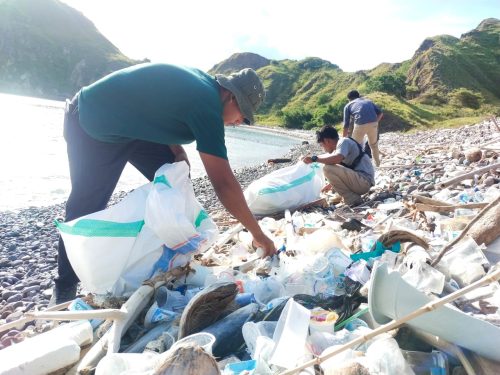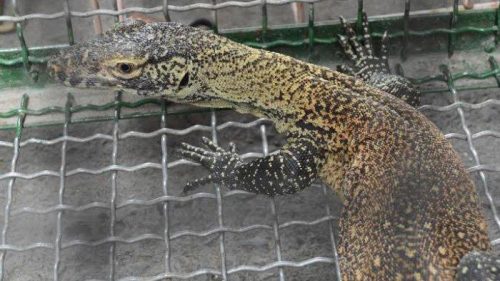Integrated Coastal Management and Ecosystem Services: The Key to Coastal Ecosystem Sustainability in Indonesia

Tim Naturalist Guide dari PT Flobamor melakukan aksi bersih sampah Plastik di Pulau Padar Selatan (Photo Credit : InsideFlores.id)
Indonesia, as the world’s largest archipelago, has a long coastline and rich coastal ecosystems. These coasts not only serve as a home for various species of flora and fauna but also provide a source of livelihood for millions of Indonesians. However, the sustainability of these coastal ecosystems faces significant challenges due to climate change and anthropogenic pressures. Therefore, integrated coastal management and understanding of the ecosystem services provided by coastal ecosystems become crucial. Integrated coastal management involves coordination among various sectors and stakeholders, while ecosystem services encompass the ecological, economic, and social benefits provided by coastal ecosystems. Thus, understanding and implementing these two concepts are vital to ensure the sustainability of coastal ecosystems in Indonesia.
Integrated Coastal Management
Integrated coastal management is a holistic approach to managing coastal and marine resources in a sustainable and balanced manner. The aim of this approach is to maintain the sustainability of coastal ecosystems, protect biodiversity, and ensure that natural resources can be sustainably utilized by future generations. In Indonesia, integrated coastal management is implemented through a comprehensive policy framework. This framework involves various stakeholders, including central and regional governments, local communities, the private sector, and non-governmental organizations. Cooperation among all these parties is crucial to achieve the objectives of integrated coastal management. Steps in integrated coastal management in Indonesia include mapping and monitoring of coastal ecosystems, regulating human activities on the coast, efficient and sustainable management of natural resources, enhancing community capacity in coastal management, and developing sustainable policies.
Ecosystem Services
Ecosystem services refer to the benefits provided by ecosystems to humans. There are several types of ecosystem services produced by coastal ecosystems, such as the provision of coastal resources (for example, fish, shrimp, and shellfish), microclimate regulation, natural disaster mitigation (such as absorbing tsunami waves), and aesthetic and recreational values.
The role of ecosystem services in the sustainability of coastal ecosystems is very important. Ecosystem services maintain ecosystem balance, provide livelihoods for coastal communities, and support the tourism sector and coastal-based industries. Therefore, the protection and management of ecosystem services are key in maintaining the sustainability of coastal ecosystems in Indonesia.
The Relationship between Integrated Coastal Management and Ecosystem Services
Integrated coastal management and ecosystem services have a close and mutually supportive relationship. Integrated coastal management helps maintain the quality of coastal ecosystems, which in turn affects the availability and quality of ecosystem services. Conversely, understanding the ecosystem services produced by coastal ecosystems is important in designing effective integrated coastal management strategies.
Case Study in Indonesia
The Komodo National Park in Indonesia is one example of a case study that demonstrates good practices in integrated coastal management and ecosystem services. Through collaborative efforts between the government, local communities, and non-governmental organizations, the Komodo National Park has succeeded in maintaining the sustainability of coastal ecosystems and protecting rare species such as the Komodo dragon. This National Park also provides ecosystem services in the form of natural tourism that attracts visitors from all over the world, providing economic benefits for the surrounding community.
Ecosystem services management in Komodo National Park in Indonesia involves various efforts, including:
- Ecosystem-Based Management : Komodo Island is managed based on an ecosystem or ecosystem-based management. The rearrangement of one of the seven wonders of the world is integrated with the leading destination, Labuan Bajo.
- Waste Management : Waste management on Komodo Island implements a sustainable system. The community is taught that plastic waste has economic value, so they are interested in sorting and collecting it.
- Human Resources Capacity Building : The Komodo National Park Office has improved human resource capacity in managing Komodo dragons.
However, there are still challenges in integrated coastal management and ecosystem services. For example, increased urbanization, industry, and tourism along the coast can put great pressure on coastal ecosystems as follows:
- Tourism Impact : There are concerns about the impact of tourism in Komodo National Park. Environmental activists ask the Indonesian government to completely overhaul the design of the tourism industry in the area, which is considered to have violated the basic principles of conservation, environment, and the principle of benefit for the local community.

Wisatawan melihat satwa Komodo (Varanus Komodoensis) di Pulau Rinca, Manggarai Barat, Nusa Tenggara Timur (Photo Credit : Hendra Nurdiyansyah/Antara Foto)
- Waste Issues : The waste problem on Komodo Island and Labuan Bajo is a matter of management and support systems. The waste problem is not only the business of the government and private companies but all parties.

Tim Naturalist Guide dari PT Flobamor melakukan aksi bersih sampah Plastik di Pulau Padar Selatan (Photo Credit : InsideFlores.id)
- Business Interests : There are concerns that the governance of Komodo National Park is full of business interests and minimal conservation action.

Barang bukti satwa Komodo (Varanus Komodoensis) ditunjukkan polisi saat ungkap kasus perdagangan satwa dilindungi di Polda Jawa Timur, Surabaya (Photo Credit : Ahmad Zimul Haq/Tribun News)
The Indonesian government has taken several steps to address these challenges:
- Tourism Impact : The government has been trying to balance the need for tourism development with conservation efforts. For instance, they have increased the entrance fee to Komodo National Park to limit the number of tourists and compensate for the damage to the ecosystem. However, there are still concerns about the impact of tourism on the park, and environmental activists have called for a complete overhaul of the tourism industry in the area.
- Waste Issues : The government has implemented a sustainable waste management system on Komodo Island. They have educated the community about the economic value of plastic waste, encouraging them to sort and collect it.
- Business Interests : There are concerns that the governance of Komodo National Park is heavily influenced by business interests and lacks conservation action. In response to these concerns, UNESCO has urged the Indonesian government to halt all tourism infrastructure projects that could impact the Outstanding Universal Value (OUV) of the park until a revised Environmental Impact Assessment (EIA) is submitted and reviewed.
Despite these efforts, the challenges remain, and the government continues to seek ways to balance development with conservation in Komodo National Park.
Conclusion
Integrated coastal management and ecosystem services are key to keeping coastal ecosystems in Indonesia healthy. Integrated coastal management helps keep coastal ecosystems in good shape and protect natural resources. At the same time, ecosystem services provide economic and social benefits for coastal communities. The Komodo National Park is a case study that shows how integrated coastal management and ecosystem services can be applied successfully, but there are still challenges.
To keep coastal ecosystems in Indonesia sustainable, it’s important to keep improving our understanding of integrated coastal management and the importance of ecosystem services. Cooperation between the government, local communities, the private sector, and non-governmental organizations is needed to take concrete actions to strengthen integrated coastal management and use ecosystem services in a sustainable way.
In conclusion, the challenges faced in integrated coastal management and ecosystem services, especially in the Komodo National Park, are complex and involve many different aspects. These challenges include balancing the needs of tourism development, waste management, and business interests with the need to conserve the environment.
The Indonesian government has taken steps to address these challenges, such as implementing a sustainable waste management system and increasing the entrance fee to the park. However, there are still concerns about the impact of tourism and the influence of business interests on the park’s governance.
Looking ahead, it’s crucial that these issues are continually addressed through a collaborative and integrated approach. This includes ongoing dialogue with all stakeholders, strict regulation and monitoring, and the implementation of sustainable practices. Only through these efforts can we ensure that the rich and diverse coastal ecosystems of Indonesia are preserved for future generations.

